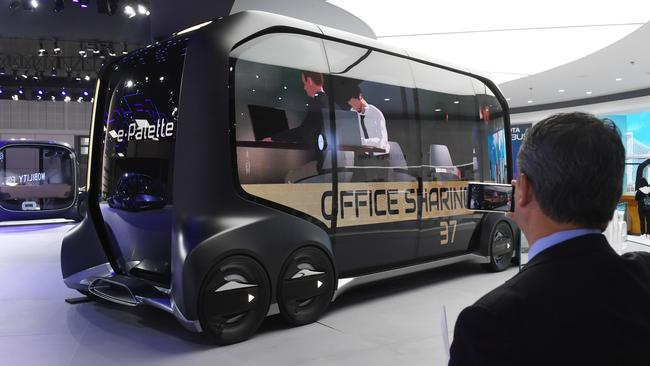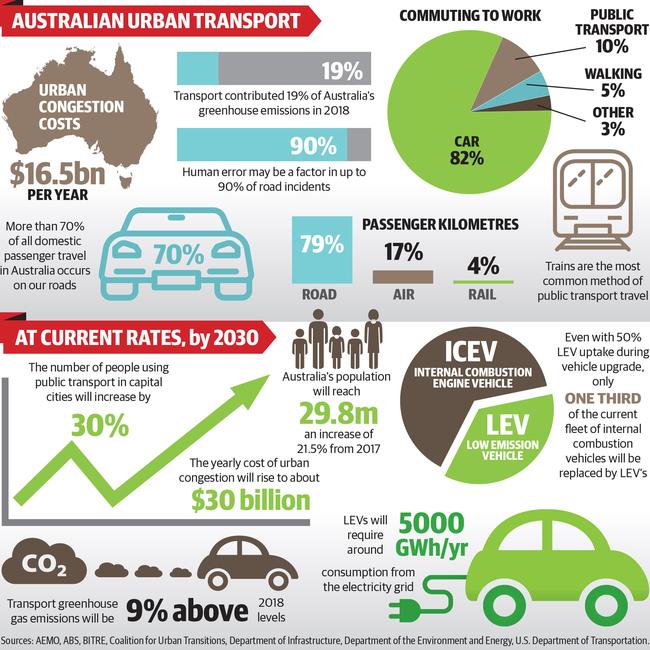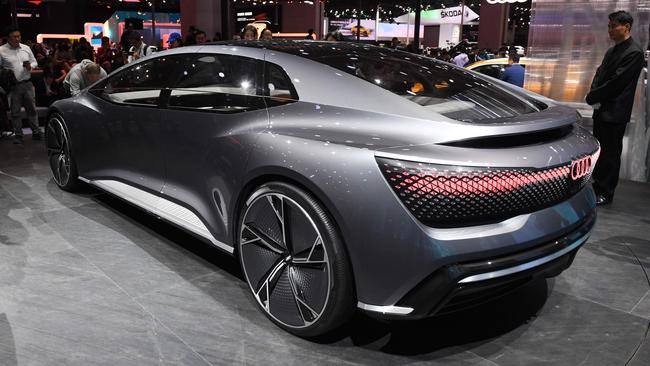Top technology academy backs electric vehicles, warns of risks from complacency
Australia’s leading scientists say we face a choice: Seize the opportunities in electric and driverless cars, or risk our living standards falling.
SA News
Don't miss out on the headlines from SA News. Followed categories will be added to My News.
Australia’s leading scientists have warned that we risk a fall in our standard of living if we fail to embrace electric vehicles and the digitally connected transport revolution.
“Strong and irreversible” change is on the way, a landmark report funded by the Federal Government says, and foreshadows “jobs at every level in the economy” will be impacted.
The report, which will be released on Monday, comes as a YouGov Galaxy online poll of 1012 people found fewer than a third supported Labor’s target of 50 per cent of new car sales to be electric by 2030.
The report, Shifting Gears – Preparing for a Transport Revolution, says “failure to be prepared will risk a decline in many aspects of our Australian way of life and society”.
And it adds that “disruption will impact jobs at every level in the economy and may occur at a rapid pace”.

The report was authored by the Australian Academy of Technology and Engineering, a fellowship which brings together university, industry, research and government leaders.
Academy policy director Matt Wenham likened a failure to accept electric vehicles and digital transport as akin to preferring horseback over cars.
“Previously, people liked riding horses,” Dr Wenham said.
“There still are plenty of opportunities to ride horses but most people don’t use them as their method of commuting.”
Similarly, he said, electric would not replace our current fleet of cars altogether but would become the preference.

The academy’s transport project was chaired by Reserve Bank board member Kathryn Fagg assisted by a high-powered committee which included former secretary of the Resources, Energy and Tourism Department Drew Clarke, former Telstra chief executive David Thodey and Boeing Research Australia general manager Michael Edwards.
The report found people were wary of electric vehicles because of perceptions about range, cost and value.
Surveys on autonomous vehicles showed Australians were less positive than global averages with 37 per cent in favour, 23 per cent against and 40 per cent undecided.
“Social acceptance is very critical,” Dr Wenham said.
“We can have the greatest technology in the world but if people don’t want to use it and there aren’t the right price and regulatory mechanisms to encourage people, then it won’t get picked up.”

He said Australia risked missing out on benefits to productivity, health, traffic management and road safety.
“If we’re not at the forefront of that, we risk becoming a technology taker.
“We’re always at risk of that because we’re a medium-size economy.”
All major automotive manufacturers are focused on electric and low-emission vehicles. Global sales of all vehicles total about 95 million a year, of which just over a million are sold in Australia, a market with the most diverse model range.
Australia had different conditions of geography and population and if not engaged in the process, Dr Wenham warns “we’ll be stuck with whatever else anyone wants to sell us”.
The academy expects low-emission vehicles to be price-competitive by the mid-2020s.
It sees great opportunity in developing battery technology using Australian lithium and in electronics and communications where companies such as South Australia’s Cohda Wireless are already global leaders.
The report also found ride-sharing platforms were “blurring the line between public and private transport options”.
The transport report is part of a three-year project on emerging technologies funded by the Australian Research Council.


